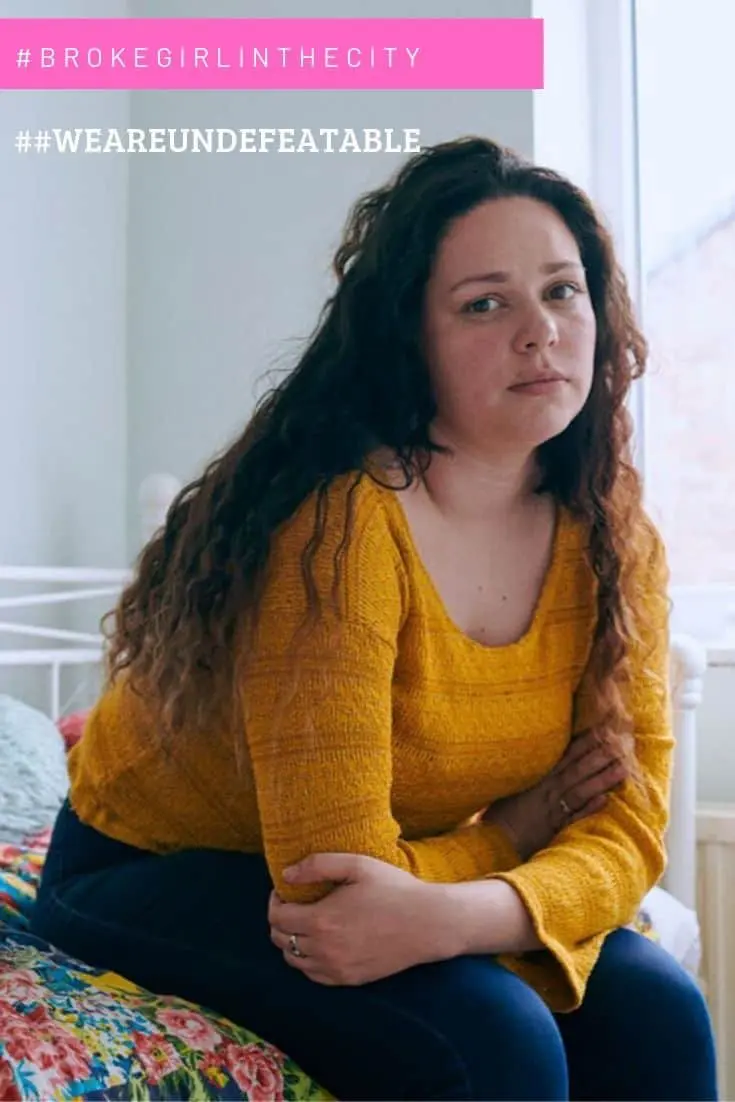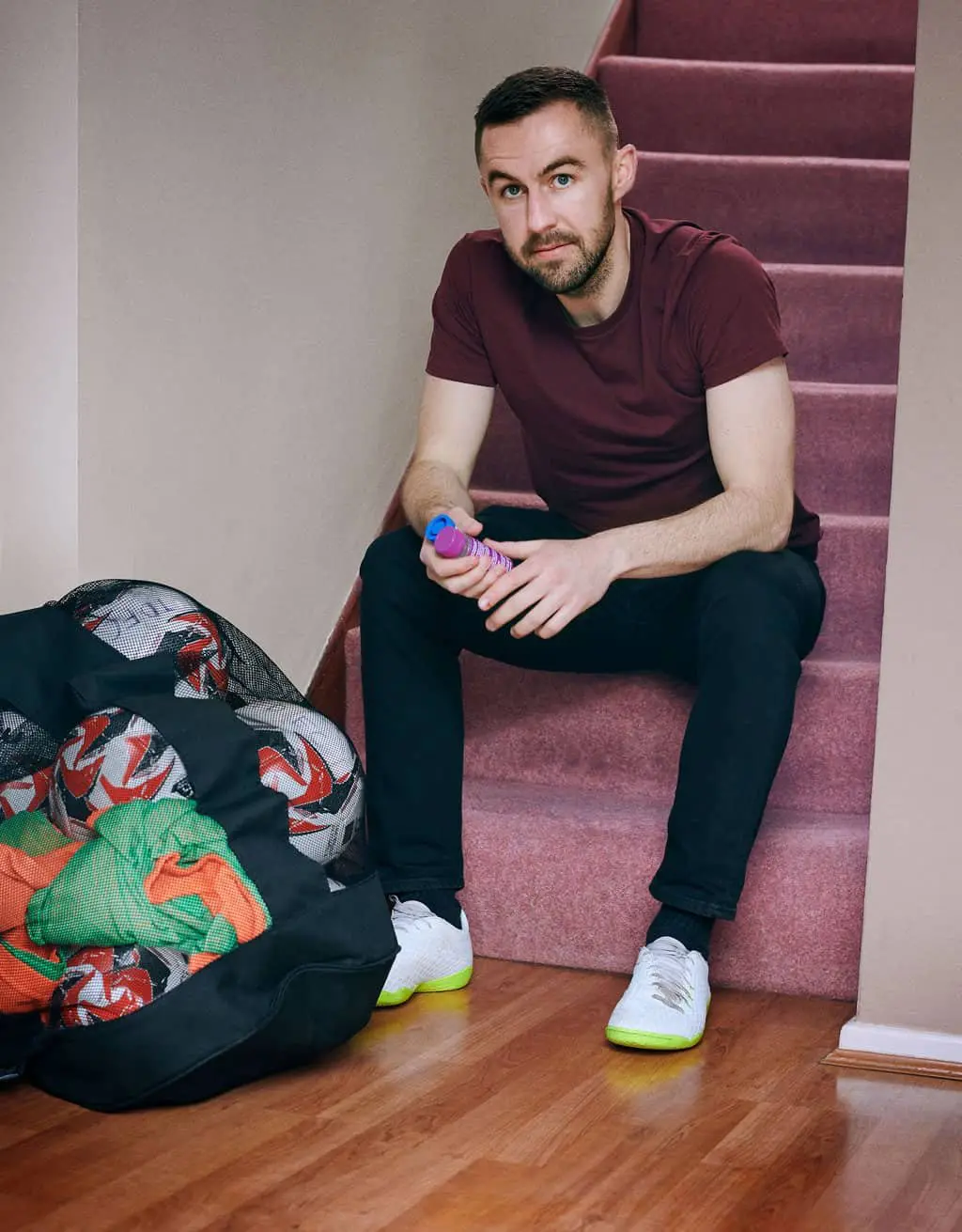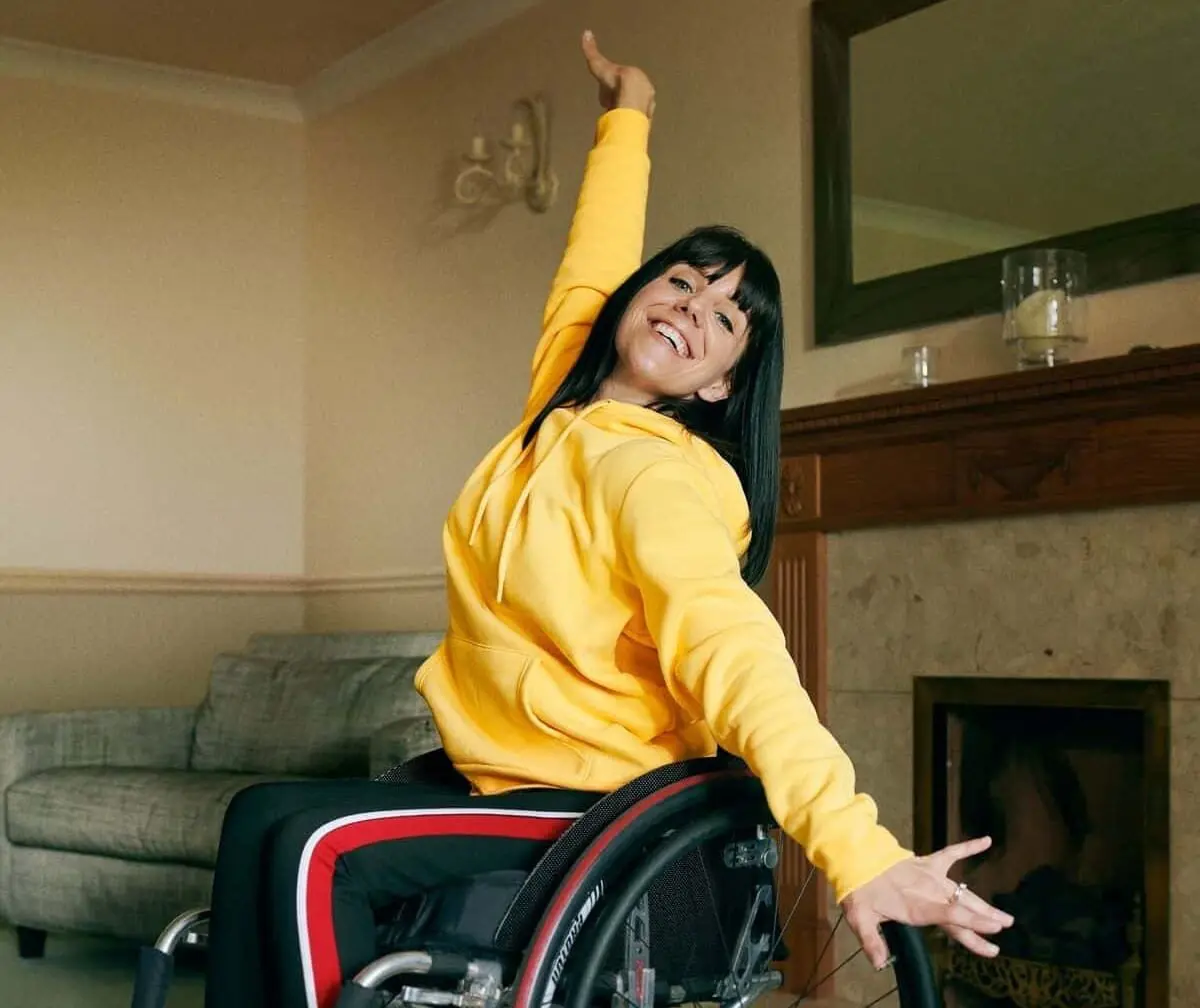
A new national campaign – We Are Undefeatable – launched to support people with long-term health conditions to be active.
15 leading health and social care charities have come together for the first time, with backing and National Lottery funding from Sport England.
By recognising the unique barriers people with health conditions face. The campaign aims to help people build physical activity into their lives. by hearing from others who have become more active through the ups and downs of living with their condition.
We Are Undefeatable: a major new campaign to support people with long-term health conditions to be active
· Over one in four (15m) people in England live with a long-term health condition, such as diabetes, cancer, arthritis and Parkinson’s, this figure is set to rise to 18 million by 2025[1].
· New research shows that over two thirds (69%) of people with long-term health conditions say they would like to be more active. Despite this, they are twice as likely to be inactive.
· 15 leading charities have come together for the first time, with support from Sport England and the National Lottery, to launch the inspirational ‘We Are Undefeatable’ campaign to inspire people living with health conditions to get active in a way that’s right for them.
An inspiring new campaign – We Are Undefeatable – is being launched to support the one in four (15 million) people in England who live with one or more long-term health conditions, such as diabetes, cancer, arthritis and Parkinson’s. By recognising the unique barriers people with health conditions face. The campaign aims to help people build physical activity into their lives, by hearing from others who have become more active through the ups and downs of living with their condition.
Individuals living with a long-term health condition are twice as likely to be inactive[2] despite evidence that being active can help manage many conditions and help reduce the impact and severity of some symptoms.[3] Even small amounts of activity can make a significant difference to overall health and wellbeing.
New research released today[4] reveals that the majority of people with a long-term health condition do want to be active, and are aware of the health benefits. We Are Undefeatable has been launched to inspire, reassure and support people to be active by showing people living with a variety of conditions – both visible and invisible – on their own journeys to being active. One day, a short walk might be all that’s manageable. For others, it might be swimming or getting active at home. It all helps.

Research shows:
· 69% of people living with long-term health conditions would like to be more active.
· 66% say it would help manage or improve their condition, with improved mood and wellbeing seen as the biggest benefit (52%).
· Nearly a quarter (24%) of people with a long-term health condition feared that physical activity would make their health issues worse. Two in five (44%) would like more help and advice on how to be more active.
Survey of over 1,000 adults also revealed that people with long-standing health concerns feel they face some unique barriers.
- Over a third of people (36%) cited lack of energy as the main barrier to increasing physical activity, 2 in 5 (40%) reported that pain caused by their health condition prevented them from increasing the amount of physical activity they do.
- Over a quarter (28%) of people with a long-term health condition reported that the unpredictable nature of their condition made it hard to commit to a routine.
We Are Undefeatable recognises these unique barriers and it is the first time a campaign has shown the emotional stories of men and women living with a variety of conditions getting active in ways that suit their needs.

Simone
Simone, 33, was born with a congenital heart defect that led to a stroke at 19. She now tries to walk two miles every day after being encouraged by her doctor. Also playing ‘Just Dance’ with her partner, which is often challenging, but always fun. Simone has seen a real improvement to her health and wellbeing.
Krisina
An invisible illness like asthma means as Krisina says, you are battling behind the scenes. Running helps her strengthen her lungs and makes her feel that she is doing something to help herself.
“You should never allow an illness to define you”
Krisina
Brittle asthma
Recently I wrote about what it is like to live with a chronic illness. Brittle asthma means that for prolonged periods, I am unable to be active. I might be able to get to work and back, but exercise isn’t even something I can consider. However, having put on vast amounts of weight on prednisolone (steroids) this year. I will embrace this campaign and introduce activity over and above walking to work on my commute.

We are undefeatable campaign
Led by a collaboration of 15 leading health and social care charities. The campaign is backed with National Lottery funding from Sport England, who ran the award-winning This Girl Can campaign.
The campaign will run across TV, radio and social media. Encouraging people to visit www.weareundefeatable.co.uk. Using #WeAreUndefeatable for inspiration and tips on how to get active in ways that suit them. Campaign support packs are also being distributed to every GP surgery and community pharmacy in England. To support healthcare professionals to promote physical activity to their patients.
Juliet Bouverie, Chief Executive of the Stroke Association and lead campaign spokesperson said;
“Whether you lose your breath from playing with the grandchildren or going for a brisk walk, this campaign is about enjoying being active on the good days and getting through the bad. As this survey shows, people want to be more active because it improves their mood and wellbeing. I’m hugely excited about helping more people living with a health condition feel that physical activity is possible, with lots of ideas about the ways that you can keep moving.”
Brian Dow, Deputy Chief Executive of Rethink Mental Illness and a campaign spokesperson said;
“We’re proud to support such an inclusive campaign that recognises the benefits of physical activity for people living with long-term health conditions. We know that physical activity can have a significant impact on our mental health, but it’s important to recognise the effect of different conditions means that we will all have different goals. Someone living with severe mental illness might consider a walk to the park in the same way that someone else prepares to take on a marathon. This campaign shows that it’s time to celebrate and enjoy the little wins that we can all achieve in our everyday lives.”
Tim Hollingsworth, Chief Executive of Sport England said;
“You’re twice as likely to be inactive if you have a long-term health condition. We believe we can change that because our research shows the majority of people with a condition would like to be more active. That might be strengthening activities, walking, going to the gym or playing a sport. We are very proud to support our charity partners in delivering this new campaign because we know with the right support, sport and physical activity have the ability to change the lives of people living with long-term health conditions for the better.
“This campaign forms part of a longer-term drive by Sport England to change cultural and social norms around long-term health conditions and physical activity. We will continue to work with everyone from healthcare professionals, coaches, governing bodies, gym operators and even town planners to ensure that people with long-term health conditions feel able and supported to get active or play sport in whatever way suits them.”
Dr Zoe Williams said;
“I see people every day in my surgery who are unsure how to become more active whilst managing their long-term health condition. The evidence base for physical activity in the management of long-term conditions is extremely compelling and I love how this campaign highlights that even small amounts of regular physical activity can significantly improve people’s physical health, and also their mental and psychological well-being. As a GP, I would wish for all of my patients to be active and I regularly prescribe physical activity alongside their other treatments. I think this campaign will give people with long-term health conditions the confidence to be more active from seeing how others with similar challenges have benefitted.”
Dominic Littlewood, TV presenter with Type 1 Diabetes said;
“Living with a long-term health condition changes your life. But I’ve learnt that you can’t let this defeat you. I’ve never been a gym person, so for me, getting active is all about taking things back to basics. I love walking, cycling and I always make an effort to take the stairs instead of a lift. I’m incredibly proud to be supporting this campaign and I hope I can inspire others to become more active.”
Rory Cellan-Jones, BBC Correspondent and Parkinson’s UK Supporter said;
“It’s really sad that people with long-term conditions feel their health is a barrier to getting active because this absolutely does not have to be the case. As someone living with Parkinson’s, it’s become clear to me that staying active is the best way to make sure I manage my symptoms and keep positive. For me, that ranges from walking the dog to a weekly Pilates class and the odd bike ride – and I’m keen to explore other activities. It is so important to find the activity that works best for you, be it yoga, dance, walking, swimming or cycling. It’s great to see this campaign kick-start a national movement, inspiring more of us to get active and live well.”
The people who feature in the We Are Undefeatable campaign, and many more people with long-term conditions, were involved in its development from the initial research right through to the design of the campaign films.
The charities behind the campaign include:
Age UK, Alzheimer’s Society, Asthma UK, Breast Cancer Care and Breast Cancer Now, British Lung Foundation, British Red Cross, Diabetes UK, Macmillan Cancer Support, Mind, MS Society, Parkinson’s UK, Rethink Mental Illness, Royal Voluntary Service, Stroke Association and Versus Arthritis.
